SDCC 2019: Pennyworth
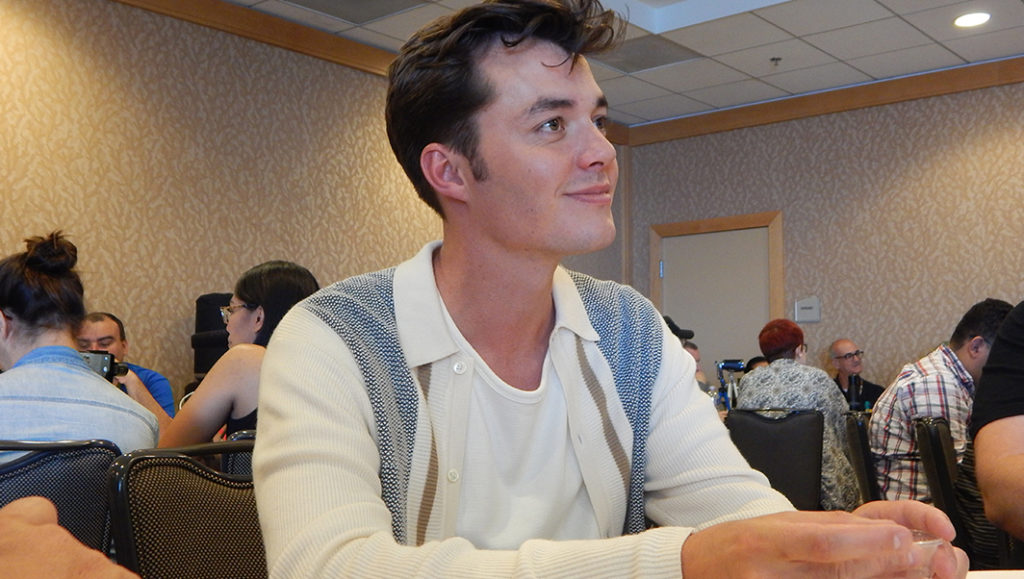
There’s a slick, dapper, and gritty new DC comic-inspired television show coming soon: Pennyworth. Set in 1960s London, this show is all about Alfred Pennyworth (Bruce Wayne/Batman’s trusted companion for those not in the know). Pennyworth, a former British soldier, has formed a security company and meets and meets Thomas Wayne, Bruce’s billionaire dad. We can’t wait to see how the show unfolds so we got a sneak peek in the San Diego Comic-Con press room.
Check out what the cast and creators of Pennyworth had to say:
Jack Bannon leads the show as Alfred Pennyworth.
What are you most excited for viewers to see: “I think I’m excited for people to see the world that we’ve created. It’s 1960s London, sure, but it’s different. It’s darker, it’s twisted…and the great thing about doing a first season is that we’re all creating it together….It’s genre-bending. It’s a spy thriller. It’s an action film. There’s romance; there’s humor…I really hope that the world captures people’s imaginations.”
The most surprising thing about Alfred: “His absolute moral solidity. He’s a strong guy, but with a warm heart. He wants to step away from violence, but he’s always drawn back to it…I completely fell in love with him, and we cross over. Bits of Alfred were in me; it’s kind of a blurred line…We should all be a bit more like Alfred, I think. He always does the right thing.”
What is the relationship between Alfred and Thomas like? “A lot of people are expecting a blossoming friendship between Alfred and Thomas, which is not the case….The dynamic is, I see it as two tigers circling. There’s a mutual intrigue and a mutual respect…Thomas has money and power and Alfred needs that at this stage in life. Thomas is a wimp [laughs] so he needs Alfred’s skills to protect him.”
Paloma Faith plays Bet Sykes.
Tell us about your character, Bet Sykes: “She is invented so I don’t have the pressure that some of the other characters have of remaining true to the references, etc. My personal endeavor was to create a female villain who didn’t use sexuality to add another level of fear because women are much more intelligent than that. I wanted to almost delve into the psychology of fear and [fear] around men for women [because of] the fact that my character has a lot of men very afraid and she has so much power even as she’s physically smaller than them; they were all terrified because of my reputation. It was exciting, interesting, and subversive when we look at the history of females in comic books as well.
The other thing that was really important to me was that to be a good actress you have to have a lot of empathy for your character. I think that sometimes people just play villains as straight up scary; that’s kind of thoughtless because I think there’s a thin line between a villain and hero. What’s so great about the Batman universe, for me, is the human condition that we discuss: the darkness of all of us.”
Can you talk about that line between villain and hero? “She has many dimensions. She has desire for human contact and feeling undervalued and underestimated and frustrated. I think she feels misinterpreted a lot and, as human beings, I think we all feel that way a lot….I feel like that is what Bet Sykes was going through. It was really important for me to think about that….I come from a music background, and when I write songs I think about what makes us all the same [even though] we may look different and appear different. I think the way I’ve interpreted this character is similar to that.
I think there’s a big similarity between Bet and Alfred Pennyworth; they’re both born into a working class background. In America, the system is set up here that you’re brought up to believe you can achieve anything even if you come from a working class background, but in Britain it’s not like that. When you’re born to a working class background, you’ll stay there–or people will try very hard to make you stay there.
I think that she, as do all villains, believes her own cause to be a just cause. I think that’s what’s interesting on a socio-political level as well given the current climate. ‘Fight the good fight,’ they say, but who’s to say which the good one is?”
Ben Aldridge plays Thomas Wayne.
How did you feel playing Thomas Wayne? “It was slightly intimidating at first, but then I realized we don’t know that much about him. We kind of know where he ends up–dead [laughs]–and we know that he’s extremely moral, and a do-gooder and upright citizen so I think, ultimately, it’s exciting to think ‘How does he get there?'”
What is his story arc like? “Thomas Wayne isn’t just totally recognizable as a hero. [Show writer] Bruno Heller has painted the characters as they’re not just black and white. There’s a lot of grey space to him. It’s not always clear who is the villain and who is the hero….He goes on quite a journey. In Pennyworth…he’s involved in espionage and underground intelligence; he’s drawn into some dark situations [and] he’s getting to grips with the morality of his line of work. Bruno’s written some really complex characters which is nice to play.”
Thomas Wayne in this show in relation to Batman: “The exciting thing is Martha Wayne is a huge part of the story. It’s exiting to see them meeting and their DNA becoming the hero that we know as Batman…We see a bit of that dark brooding quality in Batman–that Bruce Wayne has–in Thomas. He’s not a violent man, but he’s put into situations where he has to become violent. That’s a similar thing to Bruce. He’s a hero, but ultimately he’s doing these horrific acts–violent and killing. Both Martha and Thomas have that about them as well, but they’re extremely principled.”
Growing up, were you a Batman fan? I saw the films. I think the first Batman films were the Tim Burton ones. I was obsessed with Michelle Pfeiffer. I thought her Catwoman was insane. I remember that scene where she’s unconscious and her fingers are being nibbled by cats; then she goes to the fridge and drinks a pint of milk, and she’s Catwoman. I remember seeing that and being like, ‘I want to be Catman!’ [laughs]”
Bruno Heller, Pennyworth creator, writer, and executive producer
What was it like creating this? “It’s a whole different world. I don’t think anyone who loves the DC worlds has seen anything like this before, but they’ll recognize this as the same mythology. I think Jack Bannon gives us a whole new take on Alfred that’s genuine, brilliant, real, cool. He gives three-dimensions when we’ve had two-dimensions before. For me, as the writer, the great thing is being able to tell a real drama….as opposed to something that relies on special effects and super powers.”
Danny Cannon, executive producer, director, and writer
Creating a new show: “First seasons are tough…it’s all about as much information you can put up front…Just to get that environment right for the characters to walk through [is a challenge]. If you get the right actors and the right script and the right environment…that’s all you want. Then, you’re actually teaching [viewers] a language that you’ve made up and you hope they get it.”
Bringing Alfred to life: “We know one day he’s going to be a mentor to Batman. We did so much of that in Gotham, which I like. How does someone who raises a child say, ‘If you’re gong to start doing violence and have revenge thoughts, I need to teach you some things not only about humanity and benevolence, but also how to defend yourself.’? Knowing where he ends up, we wanted to concentrate on how does he know so much; where does it come from? Spending ten years in the army from 16 years old was a great way to say he traveled the world, he saw violence, people died, and he has PTSD. That’s one part of it. How does one fall in love? How does one meet somebody and fall in love? It’s Alfred Pennyworth who meets Martha Wayne first. It’s about his journey….he’s reaching for the stars. Reaching for America. Reaching for the future. Reaching against where he’s grown up.
Be sure to catch Pennyworth on EPIX when it premieres on July 28!


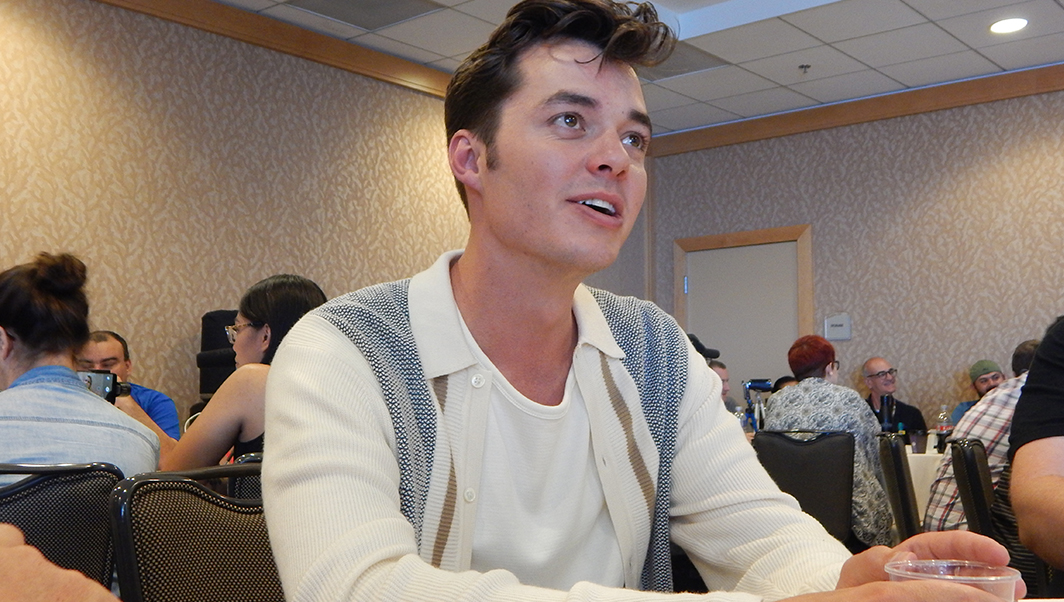
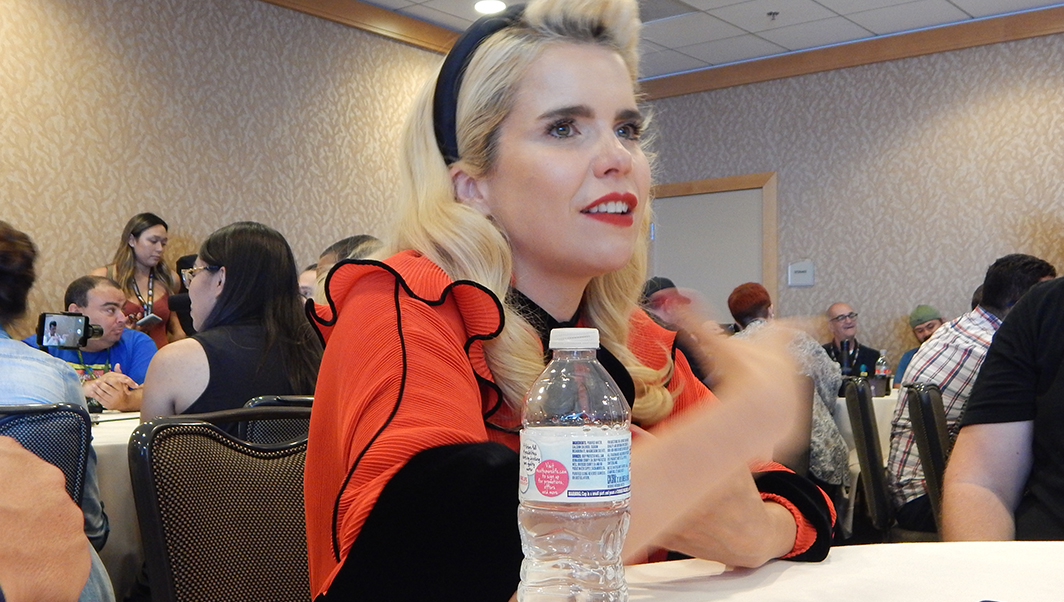
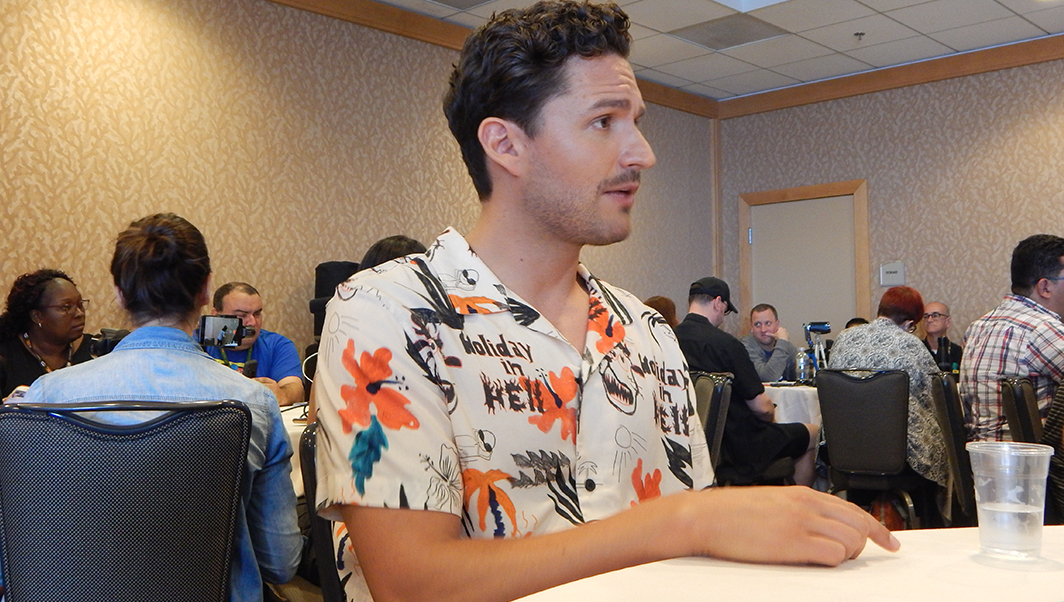
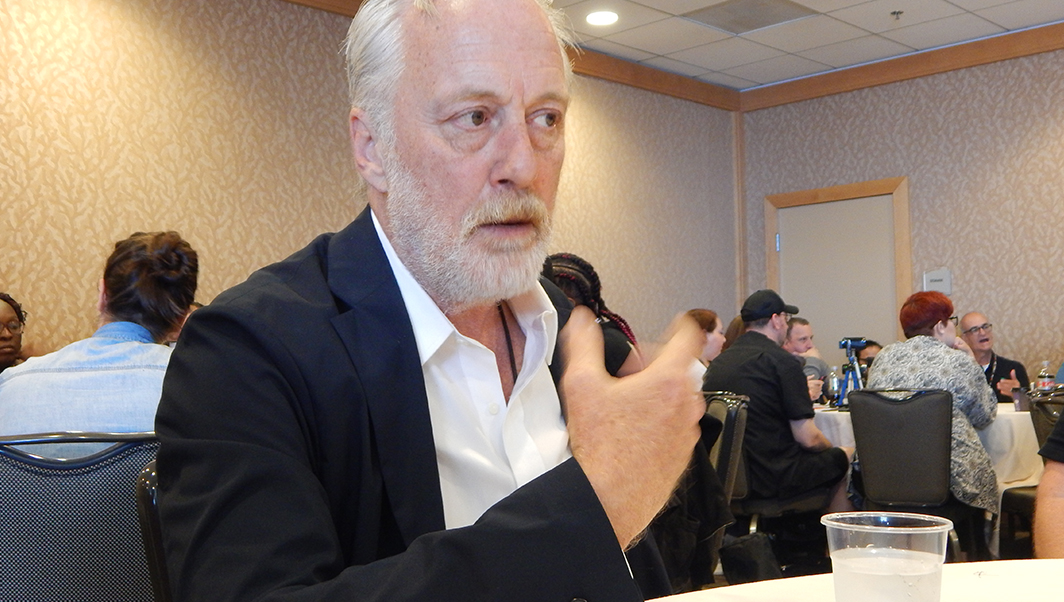
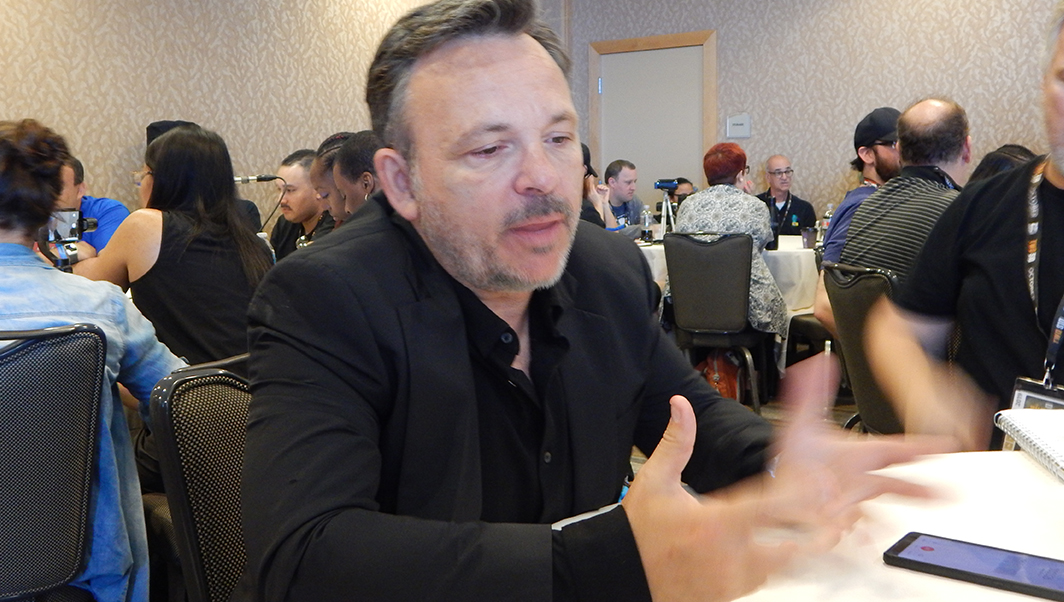
Discussion about this post